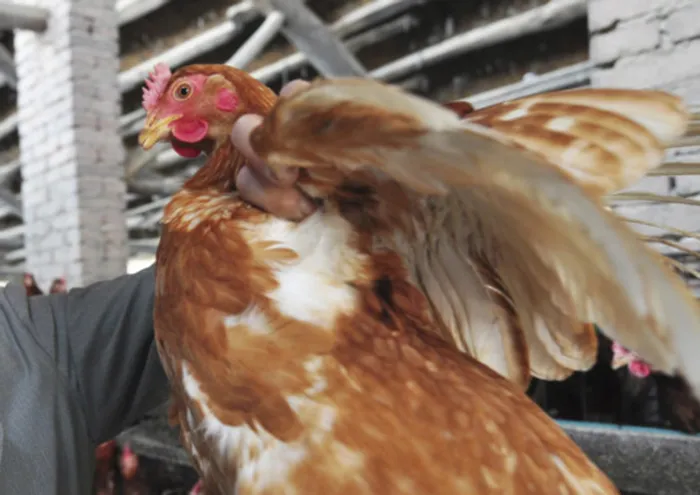An advert most fowl

File photo: Reuters File photo: Reuters
Johannesburg - ‘Stop Chicken Prices Now.” This is the headline on the advertising campaign featuring cartoons in which characters, including a woman surrounded by children, demand to know why chicken prices have doubled in price.
The advert, placed by importers, claim that should the government start collecting higher taxes on chicken imports, South Africans will pay 50 percent more for chicken and chicken products.
“In June, government will try to put up chicken prices by nearly 50 percent. Stop them now. Sign (the Association of Meat Importers and Exporters) Amie’s letter. If you don’t, prices of livers, feet, necks and other cheaper cuts will increase. Can you afford to pay more to feed your family?” the advert reads.
Amie is hoping that its adverts and petitions in supermarkets will stop the inevitable price increase in chicken prices if cheap imports to SA are halted.
This comes after the South African Poultry Association (Sapa) applied to SA’s International Trade Administration Commission (Itac) for import duties of up to a maximum of 82 percent – from the current duties which are between 5 percent and 27 percent .
The motivation, said Scott Pitman, head of the association’s broiler committee, was that many local companies close because they couldn’t compete with cheap imports.
He said a survey of 270 small farmers in December showed that 170 had shut down operations. The industry has called for greater protection against imports before, and last year it brought an anti-dumping application against Brazil that was sent back to Itac before a final determination.
But Amie chief executive David Wolpert said the association’s biggest concern was over the offal products.
“These products are sold mainly to poorer people. It is them who will be mainly affected by the this massive increase in prices.
“This is all about protecting the poor from significant price increases and that an industry that has nearly 90 percent of the market is applying for protection from the so-called ‘harm’ caused by a small minority.”
The cartoon adverts have been running in the Sowetan and the Daily Sun newspapers for the last three weeks and have received a tremendous and “overwhelming” response.
“We have received many thousands of signatures. It is obvious that people are concerned,” Wolpert said.
According to Statistics SA, the price of a whole fresh chicken had increased from R25/kg in 2008 to R34 this year while fresh portions cost R24/kg in 2008 and increased to R44 this year.
Meanwhile, frozen chicken portions had mostly remained at a stable R25 per kg in the last five years.
If Sapa’s application succeeds, it could mean that a whole fresh chicken would cost R61 per kg, frozen chicken pieces would cost R45 per kg and fresh chicken portions would cost a R80 per kg.
But last month Sapa insisted that its request for safeguards against cheap frozen chicken meat imports would not raise prices beyond 10 percent and 15 percent from current prices.
Last week, Sapa chief executive Kevin Lovell stated that countries around the world were increasingly applying import controls to protect their poultry industries.
It said the EU allowed for import duties of between R5/kg and R12/kg, Canada applied a 249 percent tariff on most imports, Norway 306 percent and Mexico 234 percent. In Africa, Nigeria and Kenya prohibited the import of chicken into their markets.
Lovell said Sapa had been sensitive to the fact that much of the mechanically deboned meat (used in polonies and other processed products) was consumed by low-income groups, therefore no duty had been requested on this product.
“Thus the argument by meat importers that the poor are going to pay more, or have their access to chicken restricted, is false,” Lovell said.
Wolpert said more expensive imported chicken would anger consumers as it would dramatically affect the cost of South Africa’s largest source of protein and hence the cost of food to the poorest of the poor.
The cartoon adverts were part of Amie’s campaign to halt Sapa’s application.
“I don’t know if it will influence Itac, but we want to get a message out to consumers.”
Saturday Star